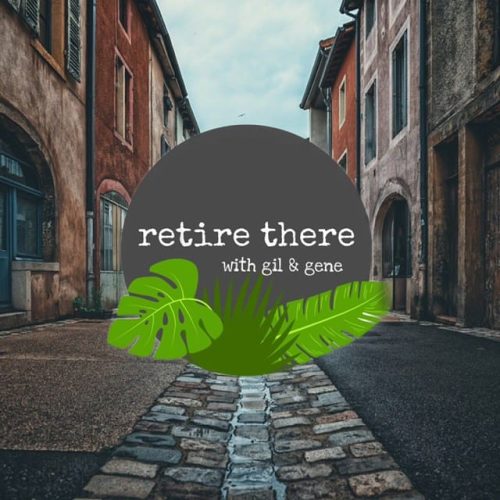You’re a Baby Boomer, So Now What?The SeniorScape®
Baby Boomers, sometimes commonly called boomers, were born between 1946 and 1964. Why the term baby boomers? They were born in the mid 20th century between 1946 and 1964 which were known colloquially as the years of the baby boom, this due to a substantial increase in the birth rate. This post World War II increase in population was first noted and reported as such in May 4, 1951 by Sylvia F. Porter in the New York Post and based on an increase of 2,357,000 increase in the US population from 1940-1950. While internationally, there may be differences in definitions, numbers and the years considered, in the United States baby boomers are the second largest demographic in numbers at approximately 69.6 million living adults. According to the US Census Bureau, until 2019, US baby boomers were the largest living adult population. As of 2022, they remain the second-largest demographic after the Millennials.
The Boomer Generation is a mighty force in American society and the Economy. In comparison to their proportion in the overall population, boomers have oversized representation as S&P 500 CEOs, chief justices, and state governors. https://www.insiderintelligence.com/charts/united-states-population-by-generation
This has not gone unnoticed by powers that be, Madison Avenue, major media outlets and think tanks, all geared towards capturing the attention and harnessing the spending power of this generation.
Baby boomers have more power as a collective than they realize or have used to their benefit. Have they taken advantage of that power? I posit the answer to that question is a resounding “no”.
How and where can they use their powerful voices and to what end?
Speaking from my professional vantage point as a gerontological speech/language pathologist and dementia care specialist who has worked over 40,000 hours in long-term care, I believe we can have a greater impact on the care our loved ones receive and, ultimately, the care we will receive as we continue to age.
What does that mean?
It is no secret that what we know of the traditional Nursing homes is that they offer less than adequate care. This is based in part on inadequate, poorly trained, overworked, and underpaid staff as well as prioritizing profit over all else, which is a large part of the equation. I believe an important root cause is the fact that we don’t value older adults in our society. Yes, maybe we do amongst our loved ones, friends and a small community circle, but as a society, we fail in this regard.
What does this mean for the impact you can have on care choices, for yourself and your loved one?
It means understanding that you are in the driver’s seat. Though you may feel that you are at the mercy of the care provider because you or your loved one has an immediate care need, understand that this is a business, and every business is in need of customers. And right now, as an industry, it is a business that is suffering. Why? because COVID exposed the ills in a way that, though we may have known them intellectually, they were not out in front and visible on the national stage. Therefore, it is important that you do your homework ahead of time. Get the important information before you need it. This means having the difficult conversations before the crisis happens. This means becoming the most informed and effective advocate for your loved one’s care.
A few days ago, I had an experience that is a prime example of this situation.
I ran into a woman who cares for an older couple living in a rather lavish home. I met her several weeks prior but, on this day, she needed to call the couple’s daughter to report to her that her father had fallen and that the mother would likely not share the information with her. The father’s condition is obviously worsening. The daughter was beside herself.
“What am I supposed to do she said, sit on the sidelines like a sitting duck?” (Can you relate to that?) I suggested we meet to discuss the possible ways to begin a conversation about the fact that the present living situation was becoming more untenable. They needed more care in their home, but the time might be right to consider moving into a smaller more manageable environment or, moving to a location where there would likely receive more attention. At the very least, an assisted living environment. We discussed the fact that this fall might not be too serious and father seemed fine, though the caregiver reported to the daughter that likely on the following day her father would be hurting. There had been previous falls. Not an uncommon occurrence as advanced age set in and, in this case, a situation exacerbated by the couple’s rather sedentary Lifestyle, social isolation and limited social connections. The caregiver reported that the next fall will likely result in a hospitalization, which would then be followed by short-term rehabilitation in a skilled nursing facility.
As I listened to the daughter with her own children in the background, I could hear her frustration, and worry. Not an uncommon situation for a member of the sandwich generation; caring for her own family, carrying job responsibilities and caring for an older parent. In this case, arranging and overseeing the caregiver situation from a nearby community. Up until now, most members of the sandwich generation were thought to be baby boomers, many of whom have retired or nearing Retirement age. However, the sandwich generation has become younger; 71% are between the ages of 40-59; GenXers, prime working years.
Though this couple is one of significant financial means and who live in a lavish home, it is one that is the same for millions of people living at all socioeconomic levels.
What is the message here? Whether it is for an older parent, or yourself as you continue to age, get the important information before you need it. Plan by choice, because there is no planning in a crisis. Those two concepts are mutually exclusive.
Check out http://www.babyboomer.org a community of like-minded people where you can learn, share and let your voice be heard. Enjoy podcasts, blogs, books, newsletters, and courses. https://babyboomer.org/?aff=PhyllisAyman
You can check out The Caregivers Guide to Caregiving Course on:
http://www.babyboomer.org
For information on Caregiving Conversations, and much needed information to make the best decisions for yourself or your loved one’s care, feel free to email me for a free 20 minute consultation at: phyllis@phyllisaymanassociates.com
To receive The SeniorScape® in your inbox email me at: phyllis@phyllisaymanssociates.com
Originally Published on https://www.phyllisaymanassociates.com/























